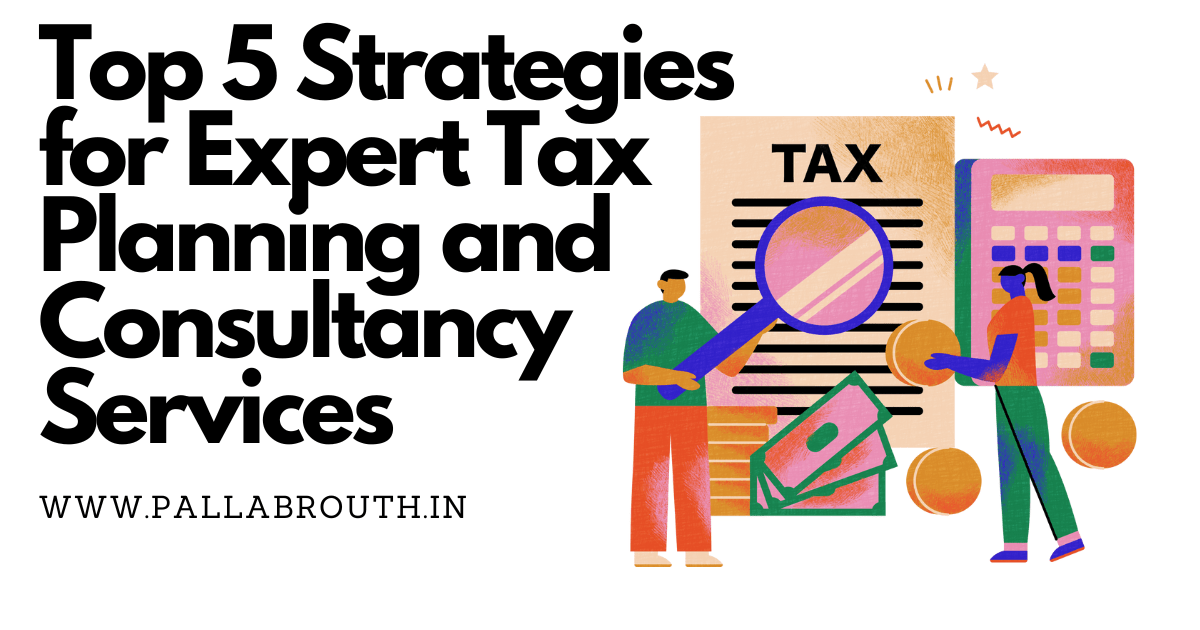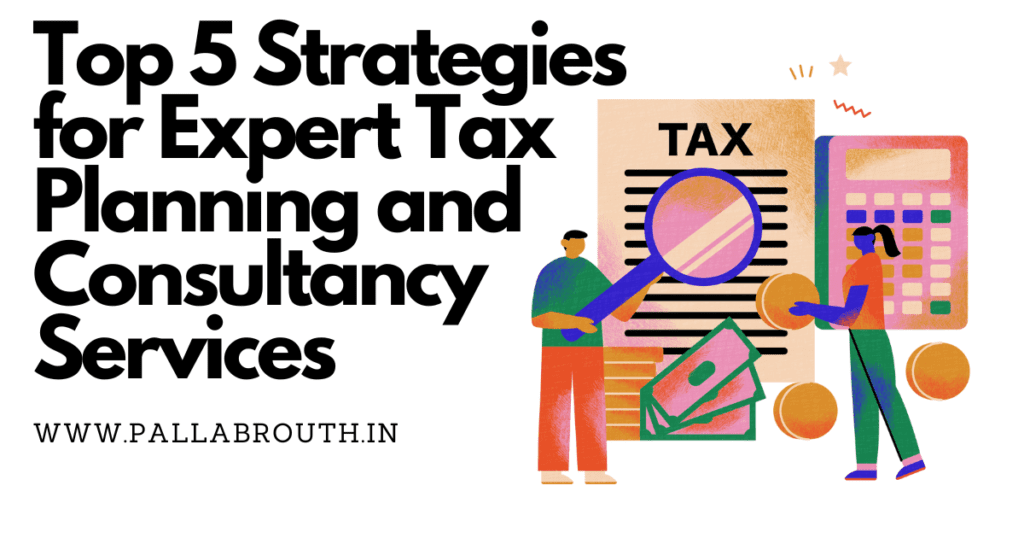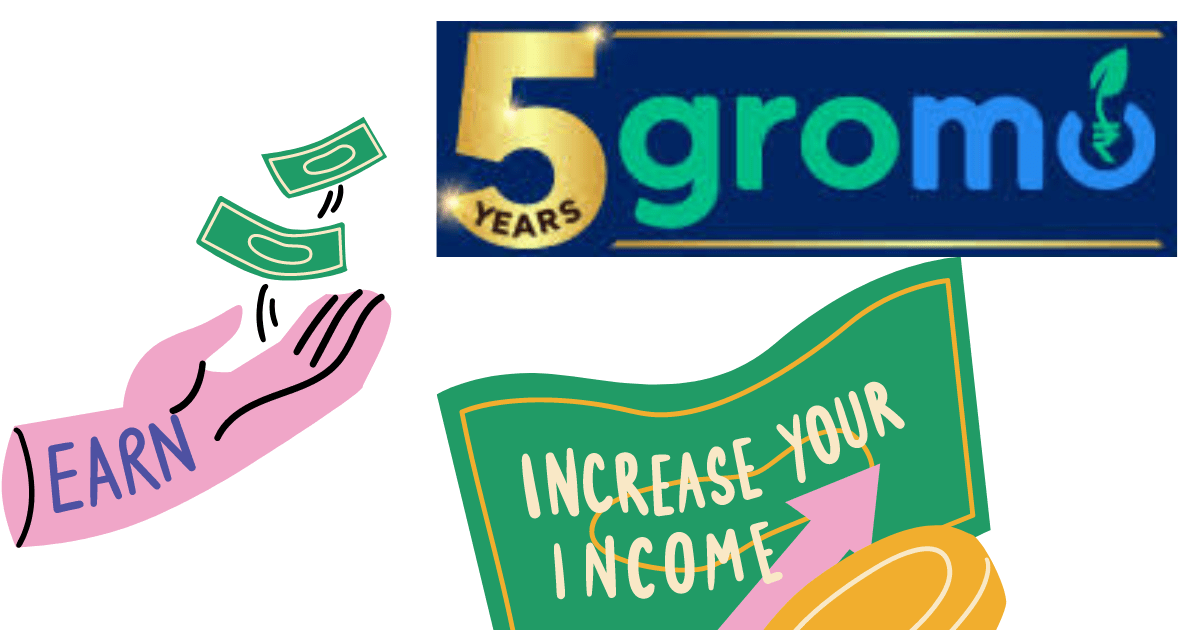Top 5 Strategies for Expert Tax Planning
Welcome to the world of savvy financial planning and tax strategy! Understanding the ins and outs of tax planning is essential for anyone looking to optimize their financial situation. Whether you’re a small business owner, a busy professional, or simply trying to navigate the complexities of personal finances, getting the right consultancy services can make a world of difference.
In this blog, we’re diving into the top 5 strategies for expert tax planning and consultancy services. By arming yourself with knowledge and leveraging the expertise of professionals, you can ensure that you’re making the most of your hard-earned money. So, grab a cup of coffee and get ready to explore how you can minimize your tax burden and maximize your financial growth.
Importance of Tax Planning and Consultancy Services
Navigating the complex maze of tax laws and regulations can often feel like an overwhelming task. Yet, the strategic approach towards tax planning and seeking professional consultancy services can turn this daunting process into a manageable and hugely beneficial financial practice. Let’s delve deeper into what tax planning entails and how consultancy services play a pivotal role.
Definition and benefits of tax planning
At its core, tax planning is the process of analyzing one’s financial situation or plan from a tax perspective. The goal is to ensure tax efficiency, with the aims of reducing tax liability and maximizing the ability to contribute to retirement plans. Essentially, it involves contemplating various tax options to determine how best to conduct personal affairs in the most tax-efficient manner.
The benefits of thorough tax planning are manifold – from reducing the amount of taxable income and lowering your tax rate to taking control of the time frame for taxes paid and maximizing your tax relief and credits. The strategic timing of major expenses, wise investment in tax-saving instruments, and making informed decisions about retirement plans can significantly contribute to your financial health.
Role of consultancy services in tax planning
Tax consultancy services play an indispensable role in effective tax planning, especially given the complexity and frequent changes in tax legislation. Tax consultants are seasoned experts who offer tailored advice and strategies based on an individual’s or company’s financial situation. They are adept at navigating the labyrinth of tax laws to find opportunities for minimizing liability and enhancing savings. Moreover, their expertise goes beyond mere tax compliance; they can provide insights into how different financial decisions might impact your taxes. For individuals and businesses alike, leveraging the knowledge and skills of a tax consultant can lead to significant financial benefits, ensuring compliance while optimizing tax positions.
Strategy 1: Leveraging Tax-Advantaged Accounts
One of the most effective strategies in tax planning is the wise use of tax-advantaged accounts, which can considerably enhance your financial well-being. Understanding what these accounts are and how they function can be the first step towards making informed decisions regarding tax savings.
Explanation of tax-advantaged accounts
Tax-advantaged accounts are types of savings accounts or investment accounts that come with tax benefits. Examples include Individual Retirement Accounts (IRAs), 401(k)s, 529 college savings plans, and Health Savings Accounts (HSAs). These accounts may offer tax benefits like tax-deferred growth, meaning taxes on these accounts’ earnings are not paid until the funds are withdrawn, usually during retirement when your tax rate might be lower. In some cases, like with Roth IRAs and 529 plans, the benefit is tax-free growth, where the contributions are taxed, but the withdrawals (including the earnings) are tax-free.
Benefits of utilizing these accounts for tax planning
By strategically utilizing these tax-advantaged accounts, you can reap significant benefits as part of your tax planning strategy. Here are some of the key advantages:
– Reduced taxable income: Contributions to certain tax-advantaged accounts, such as traditional IRAs and 401(k)s, are made with pre-tax dollars. This lowers your taxable income during the years you contribute, potentially placing you in a lower tax bracket and reducing your overall tax liability.
– Tax-free growth: Many of these accounts offer the benefit of tax-free growth. This means the investments in these accounts can grow without being subject to taxes until withdrawal (in the case of tax-deferred accounts like 401(k)s and traditional IRAs) or potentially never taxed at all (in the case of Roth IRAs and 529 plans). Over the long term, this can result in substantial savings.
– Flexibility in retirement planning: Leveraging tax-advantaged accounts for retirement savings allows for more flexibility in how and when taxes are paid. For example, by having both traditional (pre-tax) and Roth (post-tax) accounts, you can strategically withdraw funds in a manner that minimizes your tax burden based on your tax situation each year in retirement.
– Estate and succession planning benefits: In some cases, these accounts can be useful tools for estate planning. Specific types of these accounts have provisions that can help in the efficient transfer of assets to heirs, often with favorable tax treatment.
Effective tax planning, with a focus on leveraging tax-advantaged accounts, can make a significant difference in your financial landscape. By understanding and utilizing these accounts to their fullest potential, you’re not just saving for the future; you’re doing so in one of the most tax-efficient ways possible. Whether you’re planning for retirement, saving for college, or setting up a healthcare fund, integrating tax-advantaged accounts into your financial plan can be a game-changer.
Strategy 2: Maximizing Deductions and Credits
Navigating the complex world of taxes doesn’t have to be daunting. An essential part of tax planning and consultancy services is understanding and utilizing tax deductions and credits effectively. These opportunities can significantly reduce your tax liability, effectively increasing your income by lowering the amount you owe to the government.
Understanding the Difference Between Deductions and Credits
Before you dive into maximizing your savings, it’s crucial to grasp the difference between tax deductions and credits, as they can profoundly impact your tax return. Tax deductions lower your taxable income, while tax credits directly reduce the amount of tax you owe, dollar for dollar. For example, if you’re in the 22% tax bracket, a $1,000 deduction saves you $220 in taxes. However, a $1,000 credit reduces your tax bill by $1,000 directly.
Tips for Maximizing Deductions and Credits for Tax Savings
Now that we’ve outlined the difference, let’s explore how to maximize these benefits:
– Keep thorough records: Meticulously document all potential deductions and credits throughout the year, including charitable donations, education expenses, and medical costs.
– Understand what’s deductible: Many expenses, some unexpected, can qualify as deductions such as home office expenses, education expenses, and even certain investments.
– Leverage education credits: If you or your dependents are in school, you may qualify for significant education credits, such as the American Opportunity Tax Credit and the Lifetime Learning Credit.
– Invest in retirement: Contributions to retirement accounts like a 401(k) or an IRA can reduce your taxable income.
– Use a tax professional: To ensure you’re not missing any opportunities, consider consulting with a tax expert who can provide personalized advice tailored to your situation.
By exploiting every available deduction and credit, you can significantly diminish your overall tax burden. This strategy requires diligence, but the financial payoff can be substantial.
Strategy 3: Year-Round Tax Planning
One key to effective tax planning and consultation is not treating it as a once-a-year event. To genuinely minimize your tax liability and enhance your financial wellbeing, integrating tax planning into your year-round financial strategy is vital. This proactive approach allows you to adjust and optimize as your financial situation changes.
Importance of Proactive Tax Planning Throughout the Year
The importance of year-round tax planning cannot be overstated. By examining your finances and tax implications regularly, you can identify opportunities to reduce taxable income and take advantage of tax-saving strategies as they arise, rather than scrambling at year-end. This continuous process helps avoid surprises, enables better decision-making, and can significantly influence your financial health.
Strategies for Year-Round Tax Planning
To implement a successful year-round tax planning strategy, consider the following approaches:
– Monitor income and adjust withholdings: Keep an eye on your income throughout the year. If you anticipate an increase (e.g., through bonuses or investment income), adjust your withholdings accordingly to avoid underpayment penalties.
– Contribute to retirement accounts: Regular contributions to retirement accounts not only help secure your future but also reduce your current taxable income. Take advantage of employer matches and contribute the maximum allowed to IRAs and 401(k)s.
– Stay informed on tax law changes: Tax laws are constantly evolving, and staying informed can help you anticipate and react to changes that may affect your tax strategy.
– Harvest tax losses: If you invest in the stock market, consider selling off losing investments to offset gains. This strategy, known as tax-loss harvesting, can lower your taxable income.
– Plan for big expenses: If you foresee significant expenditures that may be deductible, such as medical expenses or charitable donations, planning these for years when they will offer the most tax advantage is wise.
– Regular meetings with your tax consultant: Arrange regular check-ins with your tax consultant to review your financial situation, discuss any changes, and adjust your tax strategies accordingly.
To reap the maximum benefits from your tax planning efforts, it’s essential to think of tax planning as an ongoing process rather than a once-a-year task. By staying proactive and engaged, you’ll be in a better position to navigate the complexities of the tax system effectively, ensuring you keep more of your hard-earned money.
Strategy 4: Hiring a Tax Consultant
Navigating the complex world of taxes can feel like you’re attempting to solve a puzzle with pieces that don’t quite fit. This is where hiring a tax consultant becomes a game-changer. Tax consultants are the sherlocks of the tax world, equipped with the expertise to solve the toughest of tax mysteries. They stay abreast of the latest tax laws and regulations, ensuring you’re always a step ahead in your tax planning.
Benefits of working with a tax consultant
Turning to a tax consultant can transform your tax planning experience in several ways:
– Expert Guidance: First and foremost, you benefit from personalized advice tailored to your financial situation. Whether it’s maximizing deductions, navigating complex tax situations, or ensuring compliance, a tax consultant is your go-to expert.
– Time and Money Savings: The time and frustration saved in trying to decipher tax laws alone are invaluable. Moreover, with a keen eye for allowable deductions and credits, a tax consultant can help you save money in the long run.
– Stress Reduction: Tax season can be a stress-inducing time for many. Having a tax consultant by your side can alleviate much of this pressure, giving you peace of mind knowing your taxes are in competent hands.
– Future Planning: Beyond just annual tax filing, tax consultants offer strategic planning advice to optimize your future tax situation, potentially leading to significant savings and smarter financial growth.
How to choose the right tax consultant for your needs
Selecting the right tax consultant requires careful consideration. Here are a few tips to guide you:
– Verify Credentials: Ensure that the consultant has the appropriate certifications. Certified Public Accountants (CPA), Enrolled Agents (EA), and tax attorneys are all qualified to offer tax advice.
– Experience in Your Area: Look for a consultant with experience relevant to your specific tax needs. Whether you’re an individual, a small business owner, or navigating estate taxes, the right experience matters.
– Reputation: Do your homework by checking reviews, asking for references, and consulting your network for recommendations.
– Understanding of Your Industry: If you’re a business owner, a consultant who understands your industry’s unique challenges and opportunities can be invaluable.
– Transparency and Communication: A good consultant should be clear about their fees and communicate effectively, ensuring you’re kept in the loop throughout the process.
Strategy 5: Long-Term Tax Planning and Financial Goals
Long-term tax planning should not exist in a vacuum. Instead, it ought to be a key component of your overarching financial strategy, tightly woven into the fabric of your long-term financial goals. This alignment ensures not only tax efficiency but also a smoother path toward achieving your financial aspirations.
Incorporating tax planning into long-term financial goals
Effective tax planning is crucial for long-term financial health. By considering tax implications in all your financial decisions, you can significantly enhance your wealth accumulation and preservation over time. Here are ways to integrate tax planning into your financial goals:
– Retirement Savings: Choose tax-advantaged retirement accounts like IRAs and 401(k)s wisely, considering both your current tax bracket and anticipated future tax situation.
– Investment Choices: Be mindful of the tax implications of your investment decisions. For instance, holding certain investments in tax-advantaged accounts can optimize tax efficiency.
– Estate Planning: Consider the potential tax impacts on your estate and beneficiaries. Utilizing strategies like trusts and gifts can minimize estate and inheritance taxes.
– Education Savings: Leverage tax-advantaged education savings accounts, such as 529 plans, to plan for future education expenses in a tax-efficient manner.
In each of these areas, the goal is to minimize tax liability where possible, without sacrificing the primary aim of the financial activity.
Strategies for integrating tax planning with financial planning
To seamlessly integrate tax planning with financial planning, consider adopting the following strategies:
– Regular Review and Adjustment: Tax laws change, and so do personal circumstances. Regularly reviewing and adjusting your financial plans in light of these changes is key to maintaining tax efficiency.
– Holistic Approach: Take a comprehensive view of your finances by considering how different aspects (e.g., income, investments, deductions) interact with each other tax-wise. This holistic view can help uncover opportunities for tax savings.
– Coordination With Professionals: Work closely with financial planners and tax consultants to ensure your financial and tax planning are in lockstep. These professionals can provide a coordinated approach that aligns with your overall financial objectives.
– Stay Informed: Keeping abreast of tax law changes and financial planning best practices allows you to make informed decisions and adapt strategies as needed.
By adopting these strategies, you’re not just planning for your taxes; you’re taking a strategic approach to your overall financial well-being. Tax planning becomes a powerful tool in your financial arsenal, one that helps you navigate the complexities of tax laws while pursuing your long-term financial dreams.
In summary, whether it’s hiring a tax consultant to navigate the murky waters of tax laws or intricately weaving tax planning into the fabric of your long-term financial goals, these strategies are designed to put you on a path toward tax efficiency and financial success. Remember, effective tax planning is not just about saving on taxes today; it’s about setting the stage for a prosperous financial future.
Conclusion
Let’s face it, tax planning might not be the most exciting task on your to-do list, but its benefits are hard to ignore. By embracing the strategies of consulting with a tax professional early, maximizing deductions and credits, making smart investment choices, staying updated on tax laws, and planning for the future, you’re setting yourself up for financial success. It’s about making your money work for you in the most efficient way possible, and who doesn’t want that?
Remember, the key to effective tax planning and consultancy is starting early and staying informed. While these strategies provide a solid foundation, the financial world is always evolving. That’s why partnering with a knowledgeable tax consultant can make all the difference, helping you navigate through the complexities of tax laws and uncover opportunities you might not have considered.
In the end, tax planning is not just about minimizing your tax liability for the current year; it’s about setting the stage for a robust financial health in the years to come. Taking the time now to implement these strategies can lead to significant benefits, ensuring that you’re not just working hard for your money, but that your money is working hard for you, too.


















